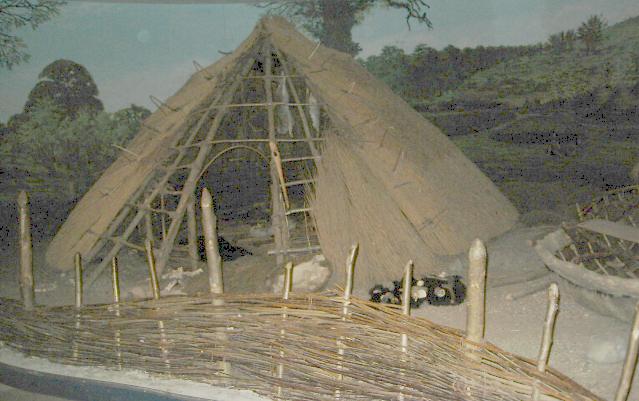Round towers are
an almost a uniquely Irish Architectural
phenomena. They first appeared on monastic sites about the year
900 and continued to be built into the 1100's. It was always thought
they were built as a refuge from raiding Viking's and unfriendly
local rulers. This indeed would have been the case, but the sheer
numbers of people attached to a monastery could not have been contained
within the limited confines of a single tower. Architectural
phenomena. They first appeared on monastic sites about the year
900 and continued to be built into the 1100's. It was always thought
they were built as a refuge from raiding Viking's and unfriendly
local rulers. This indeed would have been the case, but the sheer
numbers of people attached to a monastery could not have been contained
within the limited confines of a single tower.
The Irish word for then is cloigtheach meaning "bell house" and they were in fact belfrys were
hand bells were rung to summon monks to prayers, and meals. They
no doubt also served as a place of safe keeping for the monastic
treasures, and holy relics
meaning "bell house" and they were in fact belfrys were
hand bells were rung to summon monks to prayers, and meals. They
no doubt also served as a place of safe keeping for the monastic
treasures, and holy relics
The remains of about sixty five of them can
be found in Ireland, (some sources report over 100) some in remarkably
good condition. Occasionally they are attached to other buildings,
although originally they were freestanding, the average height was
about 20 Metres (65 ft) some were as high as 30 Metres (100 ft).
The original design was eminently functional,
their circular walls of mortared stone rising to as much as 30 meters,
and tapering slightly inwards. There was usually a single door set
at between two and five meters above ground level, and accessible
only by a retrievable ladder. Inside there were five or more storeys
each with a wooden floor and a single narrow window, with the exception
of the top floor which had four windows, giving all round vision
and presumably allowing the sound of the tolling bell to be heard
by monks working in the fields.
|